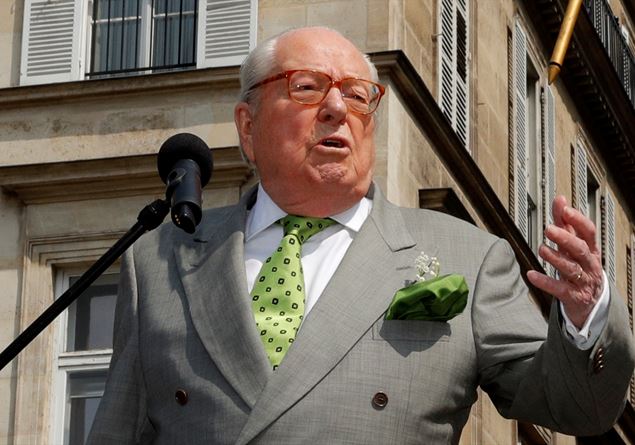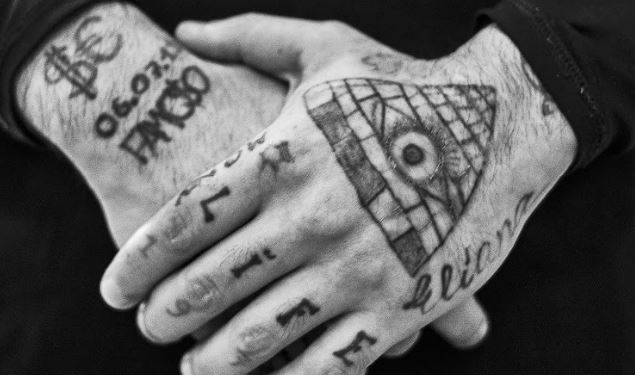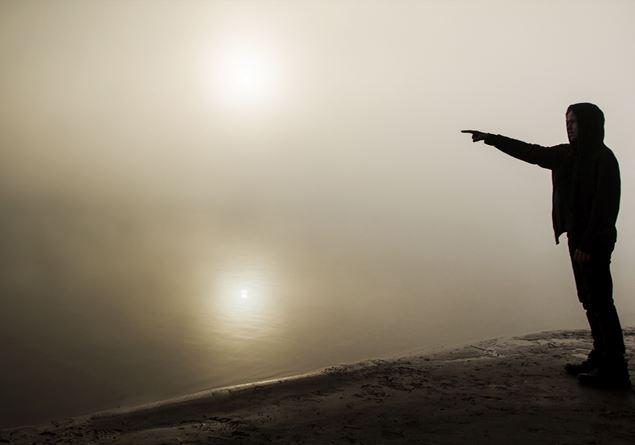by Lorenzo Rossi
Jean-Marie Le Pen died on 7 January 2025, aged 96. A long life marked by provocations, political successes and convictions. He was the leader who brought the French far right from the dark margins of politics to the heart of the national debate, reaching the second round of the presidential elections in 2002. A character who left a profound mark on the history of the Republic. A black, racist and anti-Semitic imprint. To the point that even his daughter Marine distanced herself from him.
They called it «Le Menhir», that granite boulder that defied time. And he really was granitic, with that sculpted face and that contemptuous air. Jean-Marie Le Pen was the symbol of an extreme right that did not ask for permission, which advanced through provocations and sharp slogans. Co-founder of the Front National in 1972, he erected it as a bastion of nationalism and hatred towards everything that was not “authentically French”. Including Jews.
After years in the shadows, he managed to transform that movement into a mass political phenomenon. The turning point came in 2002, when he overtook the socialist Lionel Jospin, leaving the left annihilated and forcing Jacques Chirac into a nightmare run-off.
He was born in 1928 in La Trinité-sur-Mer, Brittany. Orphan of a father, who died in a mine explosion, he grew up in a rural France that smelled of salt and poverty. Le Pen prided himself on that France: “Breton and French by blood”, he said in his speeches, proudly underlining his deep roots. He enlisted as a young man, first in Indochina and then in Algeria, where the shadows of the torture inflicted on his enemies followed him throughout his life. He didn’t deny it, but he minimized it: «What is torture? Where does it begin, where does it end?” he wondered in his Mémoires. Lost too
Le Pen’s political career began early, among the ranks of the Poujadists, but it was with the National Front that she found her true dimension. From a small extremist group, in the 1980s the FN became a political force capable of attracting a disillusioned, radicalized electorate in search of security and identity. In 1958, during a political brawl, he was attacked in which he was hit in the face. This caused a permanent injury to his left eyelid, giving him that characteristic appearance, with one eye slightly closed, which many have mistakenly interpreted as the loss of an eye.
In 1984, with the help of an overly compliant left in government, Le Pen had her springboard: an appearance at L’Heure de Véritéa leading television program, which allowed him to gain 10% in the European elections of the same year. Especially deep France, which he knew inside out, almost like de Gaulle. From then on, the “Le Pen phenomenon” never stopped.
But it wasn’t just politics. Jean-Marie Le Pen was also the man of sentences that cut like blades. «The gas chambers? A detail of history,” he said in 1987, sparking outrage and condemnation. Denialism, racism, incitement to hatred: the French courts knew it well. Yet each scandal seemed to reinforce his image as an anti-establishment tribune. Behind his statements there was a poisonous thought: the belief that the “white world” was dying under the onslaught of immigration that he defined as a “large organized replacement”. A very convenient phenomenon for attracting votes by exploiting the fears and distrust of many French people, those who were often described in Simenon’s novels.
Le Pen’s private life was no less tormented. A marriage ended with his wife Pierrette posing provocatively in a tabloid magazine; three daughters involved in politics; a dynasty that seemed more like a Gothic court of feuds and betrayals.
His daughter Marine arrived at the helm of the party in 2011. He, relegated to the role of honorary president, never stopped interfering, creating embarrassment and tension. In 2015, the relationship was finally broken. Upon his death, Jean-Marie Le Pen’s legacy is a double-edged sword. On the one hand, it laid the foundations for a party, now led by Marine, which has blunted the racist and anti-Semitic edges while maintaining a deeply radical right-wing soul. On the other hand, his most extreme ideas live today in the speeches of figures such as Éric Zemmour. Jean-Marie Le Pen leaves as he lived: divisive, polemical, yet unavoidable. A menhir that, in the end, only gave in to time.










